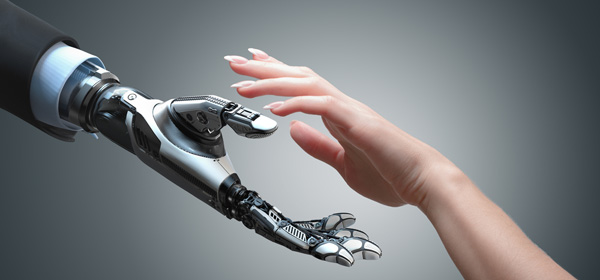In an era where technology is advancing at an unprecedented pace, it’s not just our smartphones and cars that are getting smarter. Robotics is entering a new frontier, one that promises to touch the hearts of many, especially those in the golden years of their lives. We understand that companionship and cognitive health are crucial aspects of living a fulfilling life, particularly as we age. That’s why the latest innovation from US robotics company Tombot has caught our attention.
Introducing Jennie, a battery and AI-powered robotic pet that’s been meticulously crafted to offer comfort and companionship to individuals grappling with cognitive health challenges. The brainchild of Tombot CEO Tom Stevens, Jennie was born out of a personal journey. Stevens was inspired to create Jennie after witnessing his own mother’s struggle with dementia, which led to the heart-wrenching decision to re-home their family dog when she could no longer care for it.
Jennie’s artistic design comes from none other than Jim Henson’s Creature Shop, the creative force behind the beloved Muppets. This pedigree in design ensures that Jennie is not just a robotic pet, but a work of art with the ability to evoke emotional connections. Presented at the tech fair CES in Las Vegas, Jennie has been turning heads and warming hearts.
Mimicking the size and shape of a small, reclined Labrador Retriever puppy, Jennie is equipped with touch sensors that allow her to respond to human interaction. She can produce AI-generated barks and recorded ‘puppy sounds’ in response to voice commands, further enhancing the illusion of a living pet. But Jennie isn’t just about the novelty; she’s a beacon of support for elders facing mild cognitive impairment and others who are dealing with mental health challenges such as depression, PTSD, or loneliness.
Tombot’s mission with Jennie is clear: to bring comfort and support to the over 300 million seniors worldwide who are struggling with dementia or mild cognitive impairment. The company asserts that Jennie offers an unparalleled experience that captures the essence of interacting with a real puppy, without the responsibilities and challenges that come with pet ownership.
Peer-reviewed studies have indicated that robotic animals can significantly ease symptoms of dementia, including hallucinations or aggressive outbursts associated with the condition. Jennie is designed to be a cost-effective and accessible alternative to real pets, which can be difficult for some individuals to manage due to behavioural or cognitive struggles.
Jennie operates on a rechargeable battery and can be personalised through a smartphone app, allowing users to name their robotic pet and monitor engagement. Tombot promises regular software updates to enhance Jennie’s capabilities and interactions.
Since its initial presentation at CES in 2020, Tombot has refined Jennie’s range of motion, adding actions such as blinking, and reduced her size to ensure she fits comfortably on a user’s lap. The company also has ambitions to register Jennie as ‘the first robotic puppies to be FDA-registered medical devices,’ envisioning a future where Jennie can serve in hospitals and other care facilities.
We’re curious to hear your thoughts on Jennie and the role of robotic pets in providing companionship and cognitive support. Could a robotic pet like Jennie be a valuable addition to your household, or do you prefer the companionship of a living, breathing animal? Share your opinions and experiences in the comments below, and let’s discuss the future of companionship and care in the age of technology.
Also read: AI trial in aged care begins

